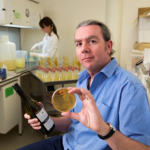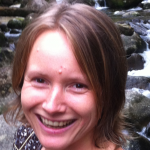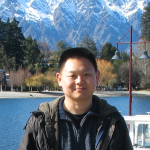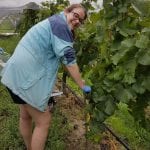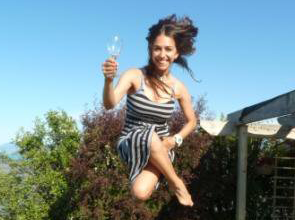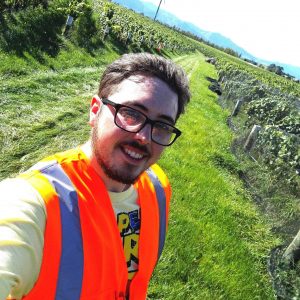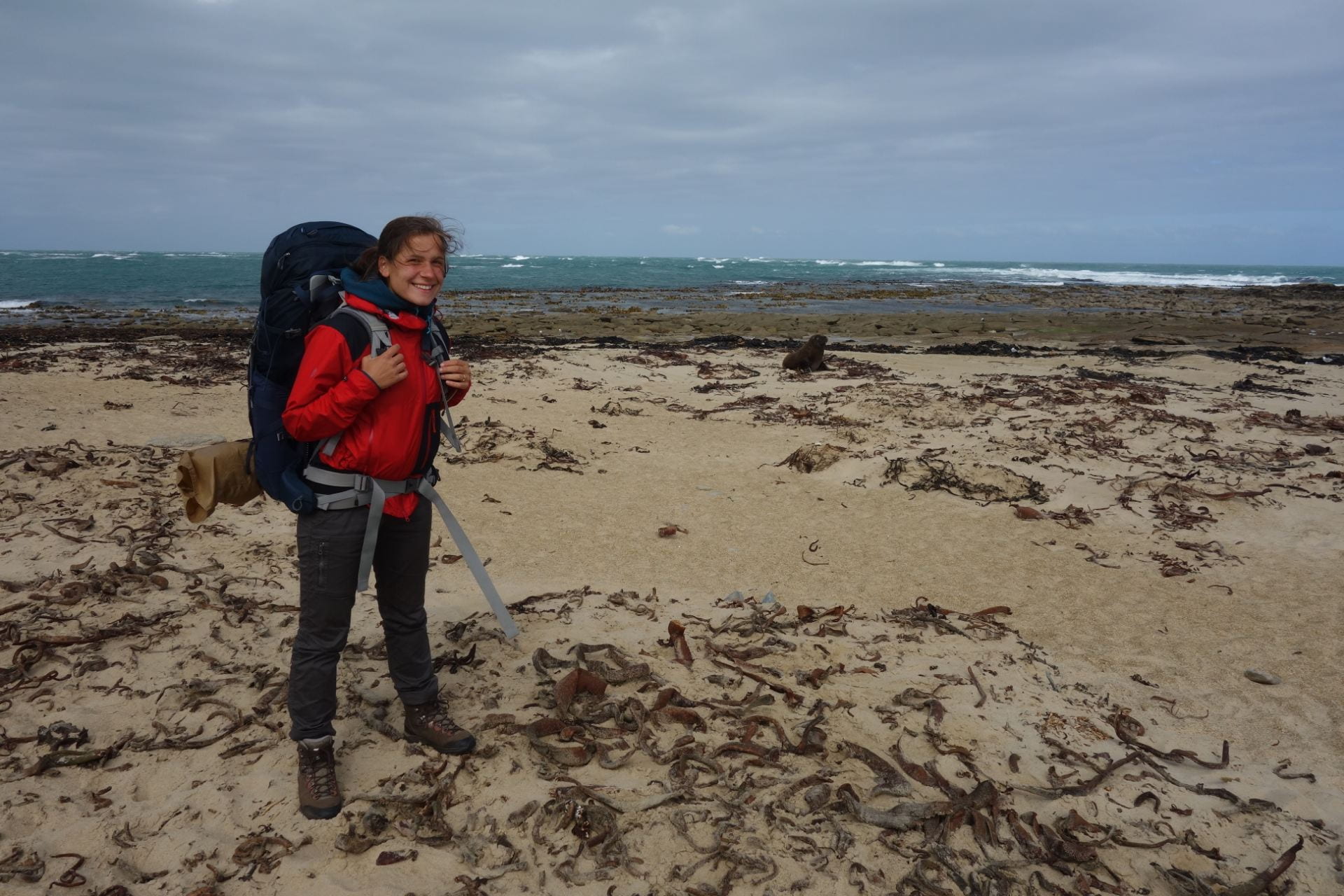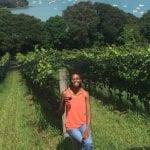The strand that underlies my work to date is a fascination with patterns and processes in nature.
As a child I remember walking through woods in the UK and being fascinated by the diversity of plants, insects and birds, and how these all interacted and seemingly depended on one another. I took a Marine Biology with Applied Zoology undergraduate degree (at the University of North Wales in the UK) – this was a integrative whole organism based degree with a heavy ecological focus. It was in the second year that I properly encountered the subject of evolutionary biology — I distinctly remember reading ‘The Selfish Gene’ by Richard Dawkins. The attraction of evolution for me was a system of thinking that put the diverse array of facts and observations concerning the natural world into perspective – a system that (sometimes) made sense of the natural world. I then moved onto research at the University of Leicester (UK) looking at the genetics of Tuberculosis, and it was here that I was introduced to, and learnt the foundations of, microbiology and molecular biology. After this I was fortunate to work toward a PhD under the guidance of Prof Austin Burt at Imperial College. The work examined the ecology and evolution of selfish genes. From here I gained a post-doctoral position at the NERC Centre for Population Biology, also based at Imperial College, initially under Prof John Lawton, and then Prof Charles Godfray, where I used yeast as model systems to conduct experimental evolution to test ideas about the maintenance of sex. From here I moved to my Faculty position at the University of Auckland. I now am based back in the UK at the University of Lincoln, but also retain a fractional position at the University of Auckland.
In the context of cross species interaction, my research interests are focused around molecular aspects of communication. I am a plant biochemist by trade and my studies ventured from legume-rhizobia symbiosis (MSc equiv. at the Max-Planck Insitute for Molecular Plant Physiology in Potsdam, Germany) to flavour-related volatiles in kiwi fruit (PhD in Chemistry, Plant and Food Research and University of Auckland, Auckland, New Zealand).
At no point I expected finding final answers doing research but stimulation to raise ever new questions. This, has not only led to an exciting journey across disciplines and countries but also across organisms. Yeast is a great model for exploring the origin of cellular life, diversity and of course chemical interaction.
CGunther@lincoln.ac.uk
+64 9 3737599 x81238
For as long as I can remember I have been fascinated with the natural world and the organisms inhabiting it. I began my studies at the University of Auckland as an undergraduate with a keen interest in conservation biology and ecology. This quickly grew to include population and evolutionary genetics which underpinned my PhD, under the guidance of Prof. Mat Goddard, investigating the New Zealand population of Saccharomyces cerevisiae and its contribution to regional wine characteristics.
I am intrigued by how fundamental theories in ecology and evolution can inform commercially relevant questions and vice versa. As such, I am interested in understanding New Zealand’s natural yeast diversity as it is associated with vineyards, and how it can be harnessed to provide new and exciting tools for the New Zealand wine industry. This is reflected in my current research as part of the Lighter Wines PGP Programme where we are investigating New Zealand derived yeasts to aid in producing high quality, lower alcohol wines.
s.knight@auckland.ac.nz
+64 9 3737599 x81238
I have always been curious about ‘how stuff works’, a curiosity that led me to study Science at University. Since graduating, I have spent time working in a number of research labs before returning to the School of Biological Sciences, University of Auckland.
In Richard Gardner’s lab I spent some years working on yeast genes important for winemaking and wine flavour (specifically the varietal thiols in Sauvignon Blanc) and more recently, on breeding improved Saccharomyces cerevisiae strains for winemaking.
Since joining the Goddard lab in 2010, I have been involved in conducting & supporting the research efforts of the lab as part of the Sauvignon Blanc Research Programme. In 2011, much effort was devoted to a rigorous sampling of the yeasts associated with Sauvignon Blanc vineyards around New Zealand.
Currently, my main projects are:
1. The fit between yeast and juice (examining if S. cerevisiae exhibit strain differences in their preferences for nutrient sources during fermentation, and if so, might this be used to improve yeast selection for winemaking).
2. The adaptation of yeasts to ferment conditions (testing if fitness of S. cerevisiae can be improved to ensure successful completion of winemaking ferments).
s.lee@auckland.ac.nz
+64 9 3737599 x81238
I have a background in New Zealand forest ecology and a general fascination with plant microbial interactions and microbial ecology. I love finding out how these tiny communities interact with each other and with the world around them.
After completing a postgraduate diploma in Biosecurity and Conservation at the University of Auckland, I continued onto my Masters study investigating the host range of the pathogen Phytophthora agathidicida, the causal agent of Kauri Dieback Disease.
Currently I am a research assistant in the Goddard lab where I am involved in research and support for several projects including the development of lower alcohol wines, and investigating the role of microbes in regional Pinot Noir quality.
Started 03/2018
I have always liked science generally and biology has been especially interesting to me. This led to me studying for my BSc (Hons) in Biomedical Science at the University of Strathclyde in Glasgow, conducting research into the shape and movement of mitochondria in the hippocampus as my dissertation topic. Following this, and looking to broaden my knowledge, I began an MSc in Industrial Biotechnology, also at the University of Strathclyde, with my masters thesis involving research into the optimal light conditions to stimulate microalgal growth. I am now researching the microbial communities that are present on grapes, looking particularly at the their population make up and interaction around the time of harvest and what that might mean for winemaking.
Started 2018
When I was 5 years old, my grandfather, an amateur winemaker, gave me wine to taste. Vividly, I remember drinking it and thinking that adults are all liars if they said they liked it.
Luckily, my taste had developed a bit since then and today I know that making a wine is not only an act of craft ship and art itself, but that there is lot of science involved as well.
I obtained MSc in Microbiology at Charles University in Prague, after working on my master thesis under supervision of Dr. Petr Baldrian at Czech Academy of Science. I then came across of the offer to study the effect of the management on the total biodiversity in agri-ecosystems, linking topics which were longtime of my personal interest.
My research focus is currently on the total biodiversity in the vineyard´s soil, fine scale variation in the biodiversity, study of the effect of management on the microbiome and linking the taxonomy of soil microbes with their functionality.
And in the meantime, I am learning about the kiwiana and trying to experience the most of NZ natural wonders.
It always comes back to the TV remote. I’m pretty sure it was the first thing I ever took apart. This need to understand how and why things work the way they do led me to obtain my BS in Engineering from Harvey Mudd College in California. While there, I fell in love with wine and became completely fascinated by it. This led me to eventually become a top sommelier in Chicago, but my curiosity wasn’t sated. So, I moved to New Zealand to pursue my MSc in Wine Science at the University of Auckland. My research is on microbial terroir with a focus on New Zealand Pinot Noir. While not in the lab I enjoy making pasta, watching anything by David Attenborough, and exploring Waiheke Island.
Post-docs
Claudia Buser
PhD Students
Peter Morrison-Whittle
Zachary Arden
Sarah Knight
Velimir Gayevskiy
Sushma Prakash
Nicole Anfang
Jeremy Gray
Masters Students
Ophir Karon
Paulina Giraldo-Perez
Beth Anderson
Velimir Gayevskiy
Loida Palanca
Amali Thrimawithana
Philipp Pfunder
Evelyn Lau
Aurelie Saintignan
Omri Yahel
Casey Jun
BTech Students
Jessica Rodrigues
Daniel Than
Summer Students
Alistair Kendrick
Henry de Malmanche
Aaron Skelton
Kelsey Serjeant
